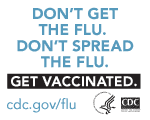Viral Hepatitis

Hepatitis is a general term that means inflammation of the liver. Viruses are the most common cause of hepatitis, although heavy alcohol use, certain toxins, and some medical conditions can also cause liver inflammation. In the United States, the most common forms of viral hepatitis are hepatitis A, hepatitis B, and hepatitis C. Hepatitis B and hepatitis C are particularly dangerous because they can be chronic diseases, leading to cirrhosis, liver failure, or liver cancer.

Hepatitis A
• Hepatitis A is caused by the hepatitis A virus (HAV).
• HAV is spread by ingesting tiny amounts of fecal matter from someone who is infected with HAV.
• This can occur through close personal contact or consumption of contaminated food or water. Poor hygiene and sanitation are major contributors to the spread of HAV.
• Hepatitis A can be prevented with a vaccine.
Hepatitis B
• Hepatitis B is caused by the hepatitis B virus (HBV).
• HBV is spread when blood from an infected person enters the body of someone who is not infected.
• This can happen between mother and child at the time of birth, between family members and other close contacts, through exposures to contaminated needles or other injection equipment in healthcare settings or among injection drug users, or by having sex with an infected partner.
• Hepatitis B can be prevented with a vaccine.
Hepatitis C
• Hepatitis C is caused by the hepatitis C virus (HCV).
• HCV is spread when blood from an infected person enters the body of someone who is not infected.
• Injection drug use is the leading contributor to the spread of HCV in the United States. HCV also can be transmitted through other exposures to infectious blood, such as in healthcare settings when recommended infection control procedures are not followed, or from mother to child at the time of birth. Sexual contact is also associated with HCV transmission.
• There is no vaccine for hepatitis C.
All three forms of viral hepatitis can cause similar symptoms — jaundice (yellowing of the skin and eyes), fever, fatigue, upset stomach — soon after infection. People infected with HAV usually fight off the virus and become immune for life. With HBV or HCV infection, however, some people are unable to fight off the virus and develop a chronic infection. Over time, chronic viral hepatitis can lead to cirrhosis, liver failure, or liver cancer.
About Viral Hepatitis in the United States
• In 2006, the latest year for which statistics are available, an estimated 32,000 new HAV infections and 46,000 new HBV infections occurred in the United States.
• Hepatitis A and hepatitis B were once far more common in the United States before vaccines to prevent them became available. As a result of vaccination, new cases of these diseases are now at an all-time low.
• After years of decline in new HCV infections, in 2006, the number of estimated new HCV infections increased to 19,000. Additional data in future years will help to interpret this trend.
• An estimated 800,000–1.4 million people in the United States are living with chronic HBV infection. Asians, Pacific Islanders, and others who were born in countries with high rates of hepatitis B are disproportionately affected.
• Over 3 million people in the United States have chronic HCV infection. Many were infected in the past through injection drug use or through blood transfusions received before 1992 when blood donor screening for HCV became available. Most are unaware of their infection. Hepatitis C is the most common bloodborne infection, the major cause of chronic liver disease, and leading reason for liver transplantation in the United States.
What You Can Do to Prevent Viral Hepatitis and Associated Liver Disease

Make sure your child is vaccinated against hepatitis A and hepatitis B. Hepatitis A vaccine is recommended for all children at age 1–2 years. Hepatitis B vaccine is recommended for all infants starting at birth. Older children can receive "catch-up" vaccinations.
Get vaccinated if you are at risk for hepatitis A or hepatitis B or if you would like long-term protection from these diseases.
Get tested for hepatitis B if you were born in a country where hepatitis B is common, live or have sex with someone who has hepatitis B, have HIV infection, or have ever been on long-term hemodialysis treatment. Also, all pregnant women should be tested for hepatitis B because it can be spread from mother to infant during birth.
Get tested for hepatitis C if you have ever injected illegal drugs, have ever been on long-term hemodialysis treatment, received a blood transfusion or organ transplant before July 1992, received clotting factor concentrates made before 1987, or have HIV infection.
If you have chronic HBV or chronic HCV infection, see a doctor regularly to be checked for signs of worsening liver disease. Discuss other steps you can take to protect your liver, including avoiding alcohol and certain medications. Consult with your doctor about whether you need or might benefit from available treatments.
For information on where to get vaccinated or tested, talk with your health professional or contact your local or state health department.
For More Information
- Viral Hepatitis
- Viral Hepatitis Awareness -- May 2008 (MMWR Weekly, 16 May 2008:57(19);513.)
- World Hepatitis Day, May 19, 2008*
- Stopping the Silent Killer: Hepatitis B Among Asian Americans (
 6:21 mins)
6:21 mins) - The ABCs of Hepatitis (
 9:34 mins)
9:34 mins) - Hepatitis Publications, National Institutes of Health
Page last updated: August 6, 2008
Content source: Division of Viral Hepatitis, National Center for HIV/AIDS, Viral Hepatitis, STD, and TB Prevention
Content owner: National Center for Health Marketing
URL for this page: www.cdc.gov/Features/ViralHepatitis
*Links to non-federal organizations are provided solely as a service to our users. These links do not constitute an endorsement of these organizations or their programs by CDC or the federal government, and none should be inferred. CDC is not responsible for the content of the individual organization Web pages found at these links.


